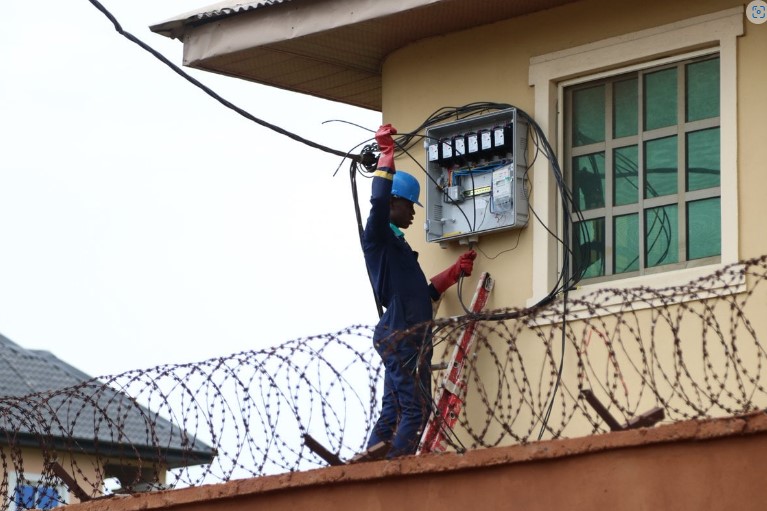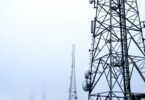Financial analysts have warned that the recently increased electricity tariff may drive up inflation in the country and inflict more misery on the poor.
Nigeria’s inflation rate climbed to 33.2% in March 2024, marking a 1.5%-point increase from February 2024, although the rise was slower compared to the previous month’s 1.80% increase.
The uptick in March was primarily attributed to higher costs in food and beverages, alongside increased energy and housing expenses.
In April, the Federal Government, acting through the Nigerian Electricity Regulatory Commission (NERC), approved a hike in electricity rates for consumers categorized under Band A, as announced by NERC’s Vice Chairman, Musliu Oseni, in a press statement.
Oseni revealed that the tariff adjustment would see customers paying N225 per kilowatt hour, a significant increase from the previous rate of N68.
Reacting to the tariff hike, the Organised Private Sector in Nigeria warned that the more than 200% hike in electricity tariffs by the Federal Government could lead to increases in inflation in the coming months and shut down over 65% of businesses in the country.
The analysts, who expressed concern over the potential consequences of recent price increases and electricity tariff adjustments on goods and services in an exclusive interview with TheWitness, highlighted the interconnectedness of inflation with the broader economy and the possibility of a spiral inflation scenario if unchecked.
The analysts stressed the ripple effects of these price increases on businesses and households and advocate for proactive measures to stabilize prices and promote sustainable growth.
They also raised concerns over possible strain on companies’ financial health, with anticipated increases in operating costs and product prices which will erode consumer purchasing power.
TheWitness reported that Nigeria’s inflation rate increased to 33.2% for the month of March 2024, according to the latest data from the National Bureau of Statistics (NBS).
This represents 1.5% points increase from the 31.7% recorded in February 2024. The increase in the inflation rate in March was slower compared to the 1.80% rise recorded in February 2024.
Inflation in March was driven by an increase in food and beverages coupled with energy and housing costs.
On a year-on-year basis, the headline inflation rate increased by 11.16% from 22.04% in March 2023. Additionally, the headline inflation rate for March 2024 was 3.02%, a decrease of 0.10% from February 2024, when it was 3.12%.
In March 2024, the food inflation rate reached 40.01% year-on-year, marking an increase of 15.56 percentage points from 24.45% in March 2023.
The Group Managing Director of Crane Securities Limited, Mr. Mike Eze, in an exclusive chat with TheWitness, provided insight into the potential consequences of the recent adjustment in electricity tariffs.
He observed that small and medium-sized enterprises (SMEs) and multinational corporations spanning various sectors of the economy could face pressure to raise product prices to offset production costs.
Expressing concern over the current economic trends, he emphasized the interconnectedness of inflation with goods, services, and the broader economy.
Eze noted that the increase in pay TV rates by MultiChoice, owners of DStv and GOtv, across board highlighted the current inflationary pressures in the country.
He pointed out that the recent increase in electricity tariffs, particularly for Band A customers, is poised to affect manufacturers of goods and services, potentially exacerbating the inflationary pressures.
Eze warned that if left unchecked, this could potentially lead to hyperinflation, further burdening consumers and businesses alike.
Attributing the electricity tariff adjustment to the rising inflationary trends, he highlighted its ripple effects on businesses and household budgets.
He noted that financial institutions are responding by adjusting their rates, while the Central Bank of Nigeria (CBN) is also increasing interest rates in response to these economic indicators.
The GMD stressed the importance of proactive measures to address the underlying cost structures and mitigate the adverse effects on the economy.
He urged stakeholders to collaborate in finding solutions to stabilize prices and ensure sustainable economic growth.
David Adonri, Managing Director of Highcap Securities Limited, also in an exclusive interview, noted that the prices of goods and services might further rise with the escalating costs associated with electricity and its implications for production expenses.
He emphasized that the rise in electricity prices is poised to elevate production costs, subsequently contributing to an anticipated uptick in inflation rates.
Adonri noted, however, that there exists a potential mitigating factor in the form of a stable electricity supply. Should consistent power availability facilitate an increase in production output, he suggested, there could potentially lower overall impact on costs.
Mr Patrick Ajudua, President of the New Dimension Shareholders Association, expressed concern over the escalating inflation rates, which he emphasized have placed significant strain on the financial health of many companies, resulting in a decline in their bottom line.
He highlighted the additional pressure stemming from the recent revision of electricity tariffs, foreseeing an inevitable increase in operating and product costs.
Ajudua pointed out that in response to these challenges, manufacturing companies are compelled to offset some of these costs by transferring them to consumers.






